Syrian scenario “unlikely” in Ukraine, ISW report says
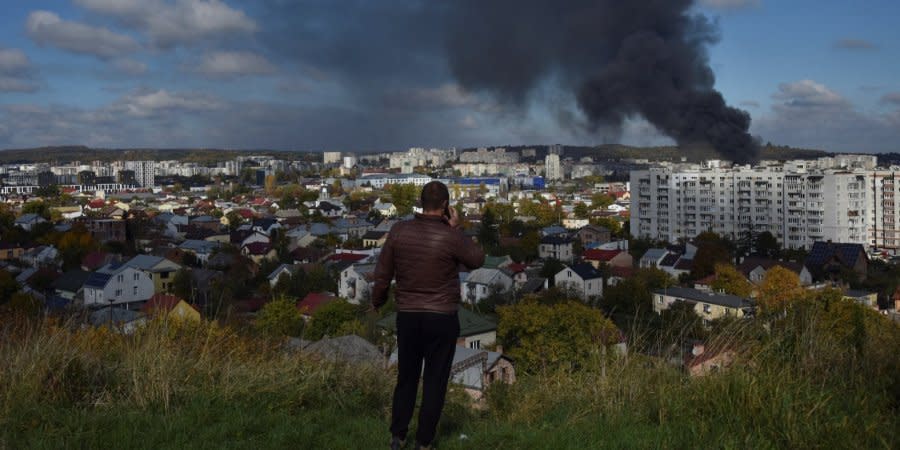
ISW analysts suggest that the Russian government and military command could have deliberately coordinated the appointment of Surovikin as commander of Russian troops in Ukraine with the campaign of missile strikes on Oct. 10-11 – "to rehabilitate the perception of the Russian Ministry of Defense".
ISW notes that Ukrainian intelligence indicates that the attack on energy facilities and other civilian targets in Ukraine was planned as early as Oct. 2 – and therefore, Surovikin certainly "did not plan, prepare, or conduct" it almost simultaneously with his appointment (Oct. 8). Any other new commander would also be obliged to implement the campaign planned before he assumed the post.
"The Russian MoD is evidently invested in repairing its public image," ISW analysts write, recalling that Russian "most vocal voices" and propagandists were gleeful about the massive wave of strikes on Ukraine.
Read also: 11 killed and 87 injured across the country in mass Russian missile attack, says DSNS
However, in fact, the appointment of Surovikin, although known for his tactics of indiscriminate bombing in Syria, will not lead to further "Syrianization" of Russian operations in Ukraine, ISW concluded. Its experts not that "the battle space in Ukraine is fundamentally different from the Syrian one", and Russia faces "very different challenges" on Ukrainian soil. To date, Russia failed to gain air superiority, which deprives it of the opportunity to launch massive carpet bombing of Ukraine, which it was able to and did conduct in Syria.
"It is therefore highly unlikely that Surovikin’s role as theatre commander will cause a fundamental change in Russian air and missile operations in Ukraine as long as Ukraine’s Western backers continue to supply Kyiv with air defenses needed to prevent Russia from gaining air superiority," ISW states.
Read also: New Russian commander unlikely to achieve success in Ukraine, UK intelligence says
Thus, the previous experience of General Surovikin as the commander of the Russian Armed Forces in Syria "likely does not explain the massive wave of missile strikes across Ukraine over the past few days, nor does it signal a change in the trajectory of Russian capabilities or strategy in Ukraine," the Institute's experts conclude. They also point out that Surovikin has been involved at the highest level since the beginning of the full-scale Russian invasion of Ukraine (first as the head of the Russian Aerospace Forces, and then as the supposed commander of the southern grouping of Russian troops) – as were many other high-ranking Russian commanders also linked to Russian operations in Syria.
General Alexander Dvornikov, who was appointed in April to the same role of commander of Russian troops in Ukraine, similarly commanded Russian troops in Syria in 2015-2016 and became infamous for deliberate and brutal attacks on civilians. In fact, all the commanders of Russian military districts, aerospace, and airborne assault troops have served in Syria at some point – either as chiefs of staff or commanders of Russian troops. And all this time Russian troops deliberately targeted Syrian civilian infrastructure, including hospitals and bread lines.
Read also: Russia escalating provocations in Syria — WSJ
"Disregard for international law and an enthusiasm for brutalizing civilian populations was standard operating procedure for Russian forces in Syria before, during, and after Surovikin’s tenure. It has become part of the Russian way of war," ISW says.
Map of hostilities: offensive of the Armed Forces in the east and south, battles in Donbas
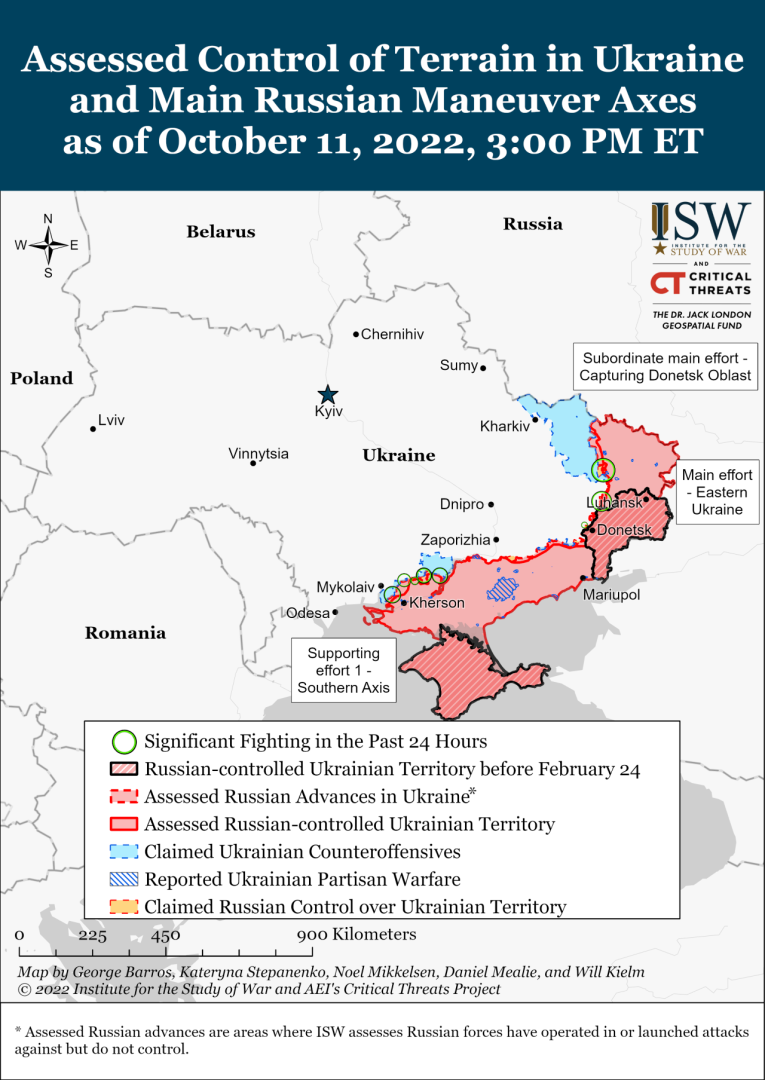
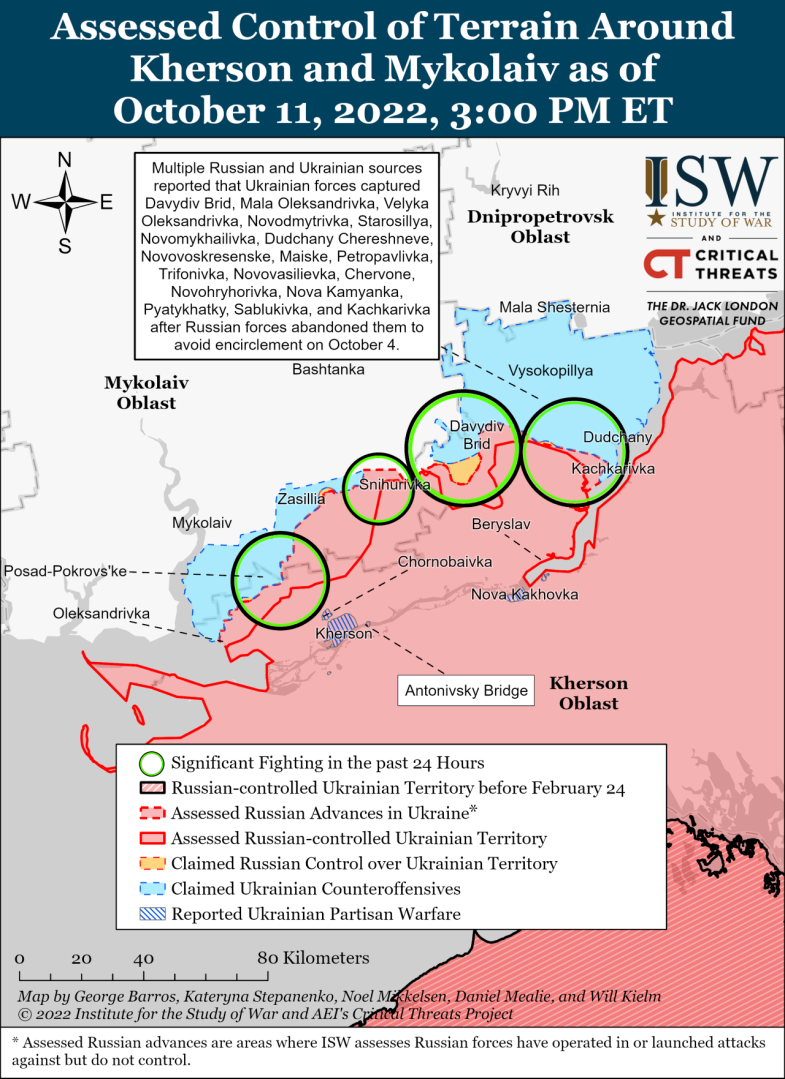
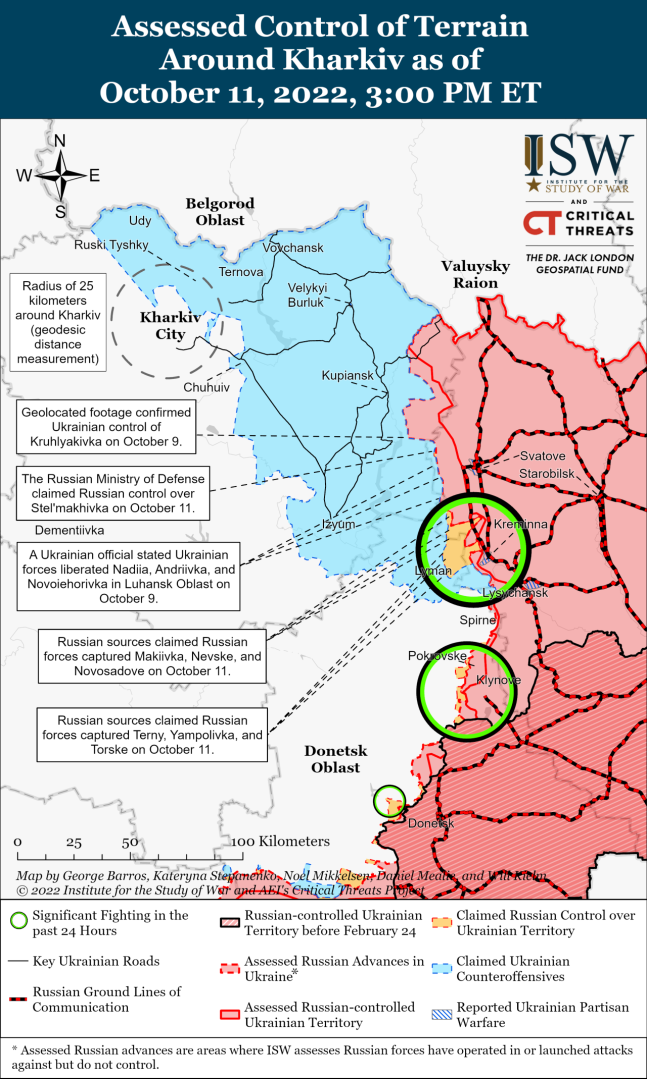
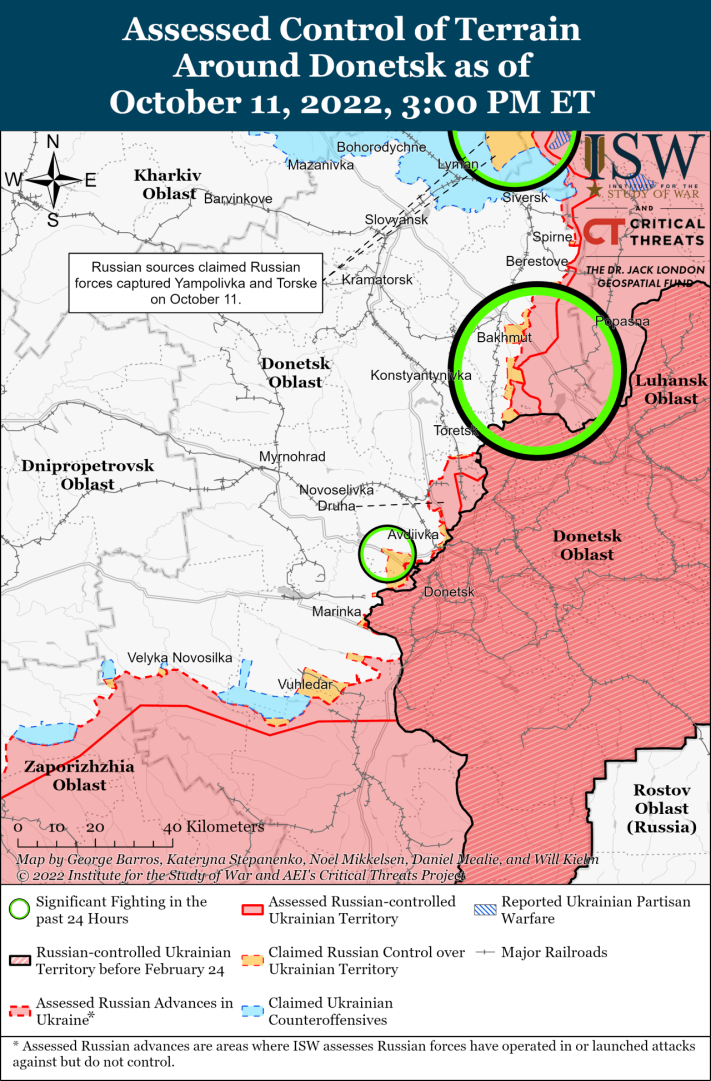
Read the original article on The New Voice of Ukraine

